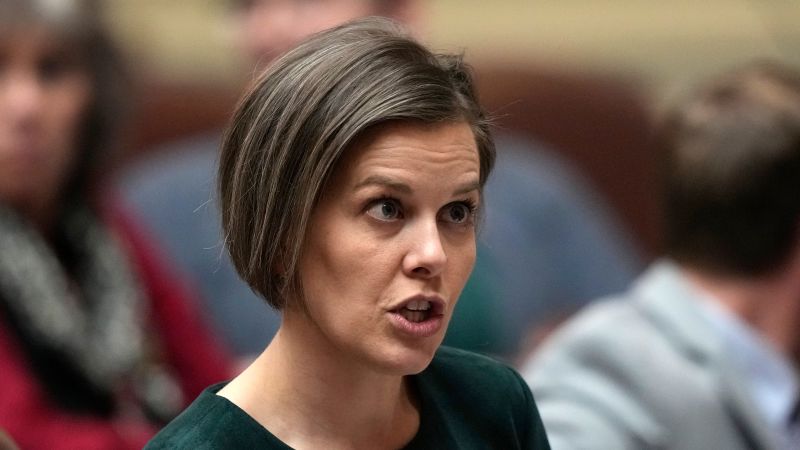CNN
—
The Supreme Court on Tuesday granted a request from Republican Maine state lawmaker Laurel Libby to restore her voting power for the next legislative session after she was censured earlier this year for expressing opposition to transgender athletes competing in girls sports in a controversial post on X.
The court made its decision with a brief, unsigned order, that did not explain its reasoning.
Two liberal justices – Sonia Sotomayor and Ketanji Brown Jackson – dissented.
Libby was censured in February by a Democratic-controlled Maine House after she posted on social media about a Maine high school girls’ indoor track and field state championship, where the transgender student who won first place in girls’ pole vault had competed in the boys’ division the previous year.
The post on X, which received national attention, included the names of students and photographs of the athletes she was criticizing. She insists the goal of her post was to draw attention to the competition.
Libby is an outspoken critic on the issue of allowing transgender athletes to participate in girls’ sports. Last month, she joined Attorney General Pam Bondi at a press conference where Bondi announced that the Justice Department would be suing Maine for refusing to comply with President Donald Trump’s ban on transgender athletes in high school sports.
The Maine lawmaker sued the state’s House speaker along with other Democrats, following her censure, saying that her First Amendment rights had been violated and that her constituents were being disenfranchised by her inability to vote or speak on the House floor.
In a scathing dissent Tuesday, Jackson argued that the decision to intervene in cases where there was not apparent emergency was “both inequitable and unwise.”
Libby had not “asserted that there are any significant legislative votes scheduled in the upcoming weeks; that there are any upcoming votes in which Libby’s participation would impact the outcome; or that they will otherwise suffer any concrete, imminent, and significant harm while the lower court considers this matter,” Jackson wrote.
Jackson said she was concerned by the fact that the high court was intervening on an emergency basis despite there being no clear indication that Libby would miss any votes before the censure was reviewed by lower courts.
“Not very long ago, this court treaded carefully with respect to exercising its equitable power to issue injunctive relief at the request of a party claiming an emergency,” Jackson said, asserting that justices often declined to intervene in such cases absent “the most critical and exigent circumstances.”
“Those days are no more,” Jackson wrote.
“Today’s court,” Jackson wrote, “barely pauses to acknowledge” what she described as “important threshold limitations on the exercise of its own authority.”
“It opts instead,” she wrote, “to dole out error correction as it sees fit.”
This story has been updated with additional details.
CNN’s John Fritze contributed to this report.

